In the northeast corner of Atlantic City, New Jersey, is a two-mile spit of land east of Gardners Basin. It was razed years ago – everything was torn down and redeveloped into low cost or senior living cottages. In the first three decades of the twentieth century, the neighborhood was filled with common people who worked hard and paid their taxes. It was a mixed community of Russian Jews, Irish Catholics, and Italian and Polish immigrants. The 1940 census is the best list of those who lived in the rowhomes that lined streets named N. Vermont Avenue, N. Maine Avenue, and Lighthouse Court. They were city employees, butchers, waitresses, bakers, nurses, hotel clerks, beauticians, dishwashers, elevator operators, and watchmen. These were the folk who worked in the hotels of the worlds playground – the often used nickname for, ACNJ.

One family that arrived in Atlantic City early in the 1920s was the Goldrings. Samuel was born in Russia in August 1887. He was likely born in the same village as his father Jacob, but according to immigration documents, Jacob was born in Poland. Bertha, Samuel’s wife was born in Pennsylvania in 1892. They had three children.
In the years that followed the Goldring family’s immigration to the United States, which may have been as early as 1907, Samuel apparently did not know what his occupation was or it changed frequently. For a short time after 1907, he listed himself as a florist; in 1925 he told the data gatherers for an Atlantic City Directory that he was unemployed; in 1935 when he registered for the draft, he claimed to be a theatrical performer with the Keith Circus Company of East Saint Louis, Illinois. When Samuel and Bertha moved to Atlantic City, he claimed to be a laborer in the hotel industry and in 1932 a watchman.
The one occupation that was never recorded on an official document is postcard artist and publisher. The earliest artist signed and dated or postally cancelled card is from 1935. The backs of most of Goldring’s cards have a publisher’s mark: Published by The Art Center, 442 N. Vermont Avenue, Atlantic City, N. J., which was Goldring’s home address. Yet, there are others published by Jersey Supply Company, a wholesale paper products supplier that worked out of 1814 Atlantic Avenue in Atlantic City.
A fair estimate of the number of cards published by The Art Center, and signed by Goldring could be as many as twenty-five. When examined, the entire collection possesses no rhyme nor reason. The subjects are quite varied. Cards with people interacting with animals, from chickens to eels and mules. Topics vary as well. A young girl in an awkward situation is common and so is the rotund, opinionated, and dominate woman. Each card is captioned with a title that is somewhat tawdry and filled with double-entendres meant to be funny, but often misses the mark – by a wide margin.
It would be impossible to guess how Samuel Goldring’s postcard production enriched his life or how much it swelled his bank account. There was, however, one significant event when Goldring’s “wicked sense of humor” caused him some considerable trouble.
The headline tells the story.
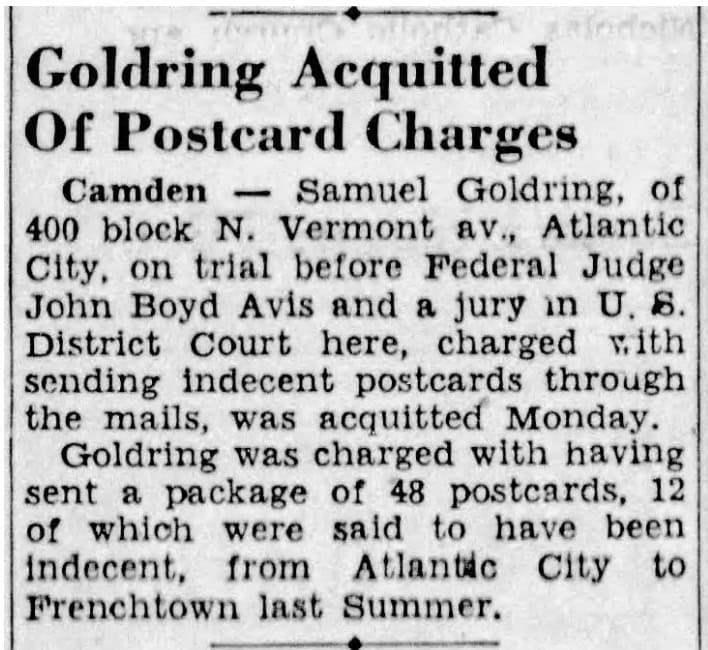
In the spring of 1941, he was accused by the United States District Court in Camden, New Jersey, of violating postal rules by sending indecent postcards through the mail. A transcript of the trial is unavailable, but it may be a fair assumption that the card below was the item in question. It is a delicate drawing of a dancer, copyrighted in 1936. How many of the cards were used is unknowable, but if you examine the back of the card, especially the overprinted center line, it is a good clue that it caught the attention of someone with authority.
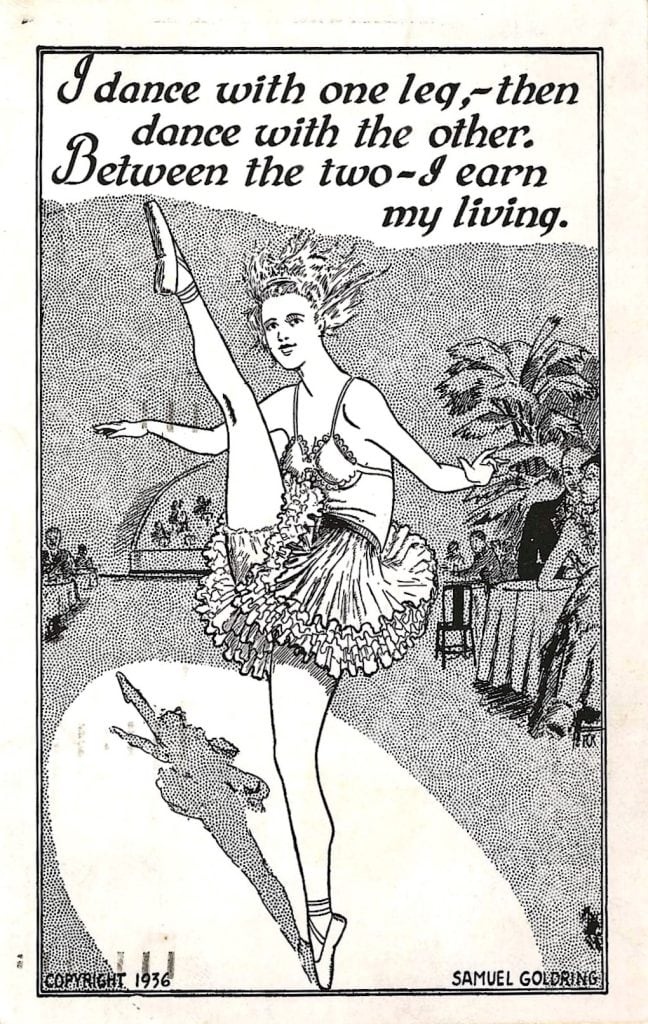
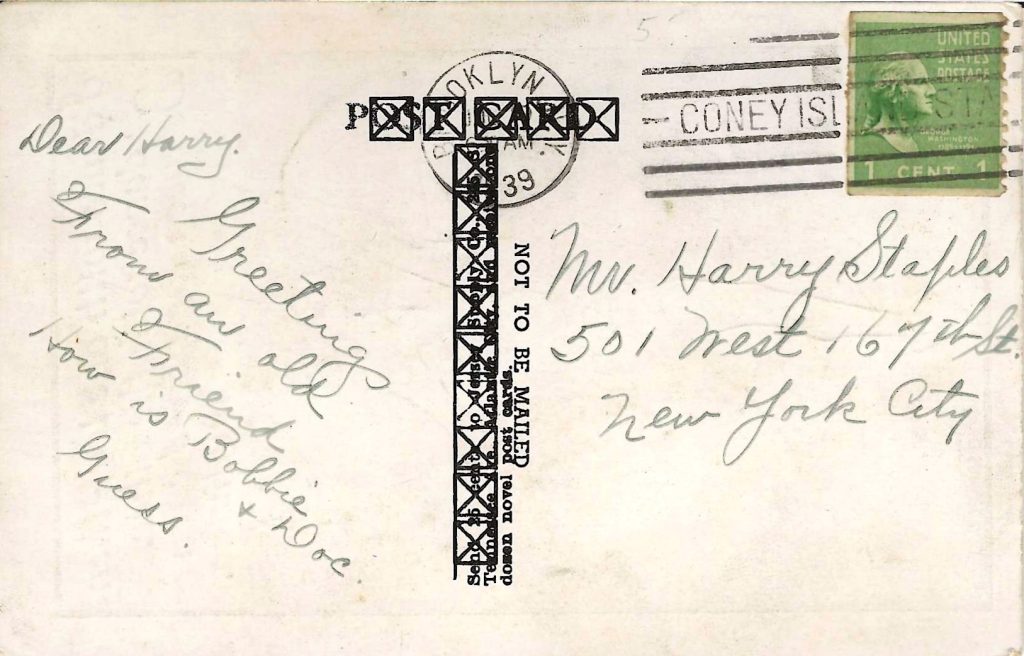
The card is clearly marked NOT TO BE MAILED but that didn’t seem to matter to Harry Staples’s old friend, “Guess.”
Goldring’s encounter with the U.S. District Court was not his first brush with the law. Both before and after the 1941 battle with the Post Office in Camden, his name appeared often in the Atlantic City newspaper on the pages where legal notices of property transfers were announced. He sued others frequently for non-payment of debt and there are an equal number of times when he was sued for the same reason. Mr. Goldring could have been a person with some strong opinions on many topics, “letters to the editor” appeared often through the 1920s and 1930s.
Samuel Goldring’s name disappeared from the newspapers in the early 1940s. The last time he was listed in the Atlantic City Directory was 1941. No obituary can be found, but his postcards are in the comic boxes of many postcard dealers.
Other samples of Samuel Goldring’s postcards, the ones for mature audiences, follow…
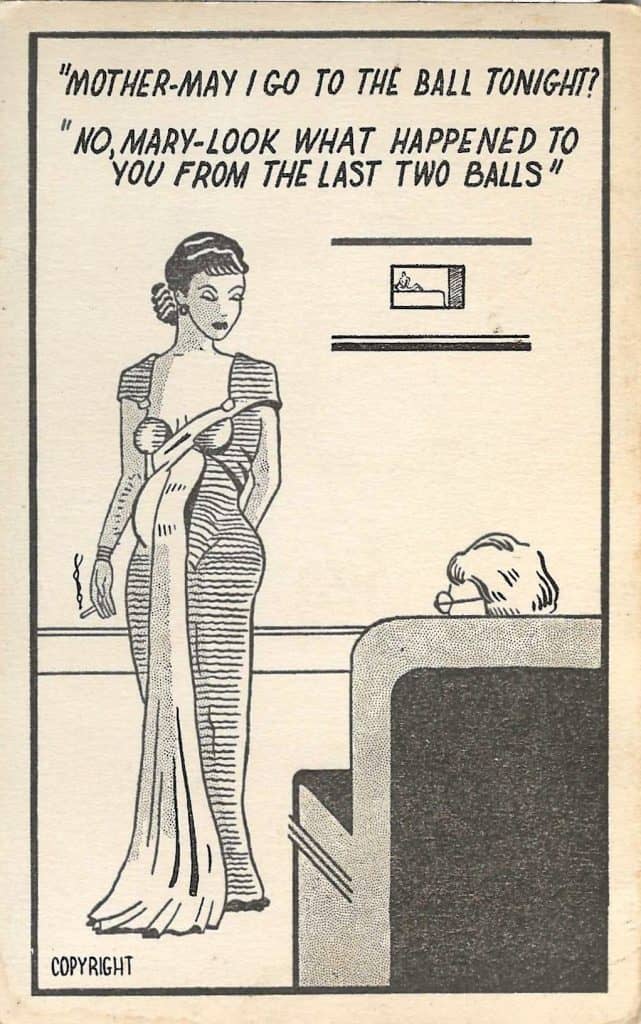
Across America and around the world it is often said about one individual or another, “He’s a character.” It may well have been that Sam Goldring was Atlantic City’s character!
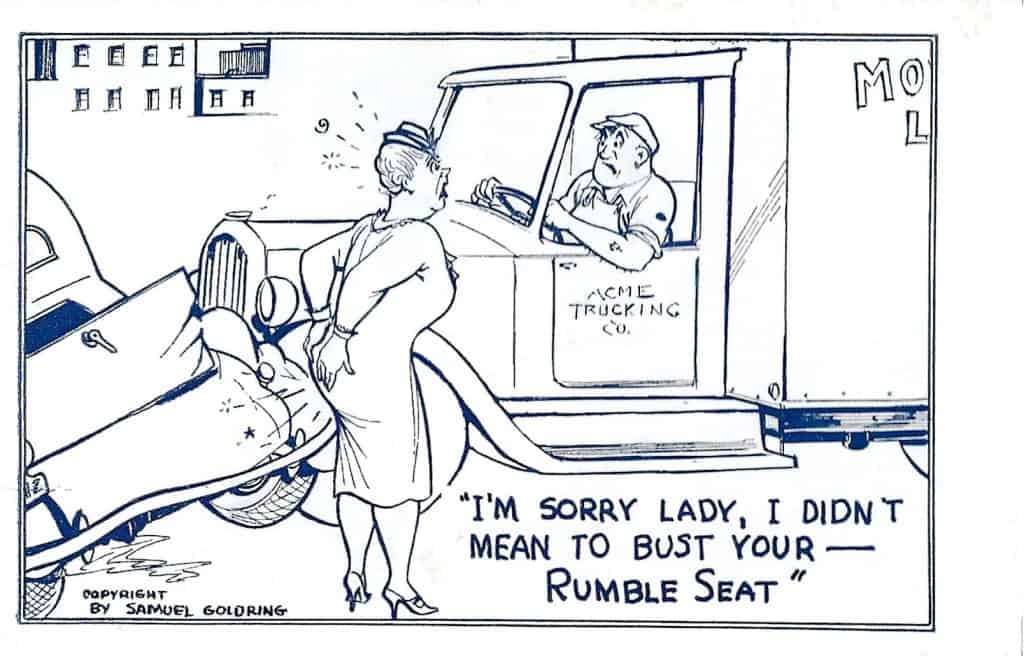
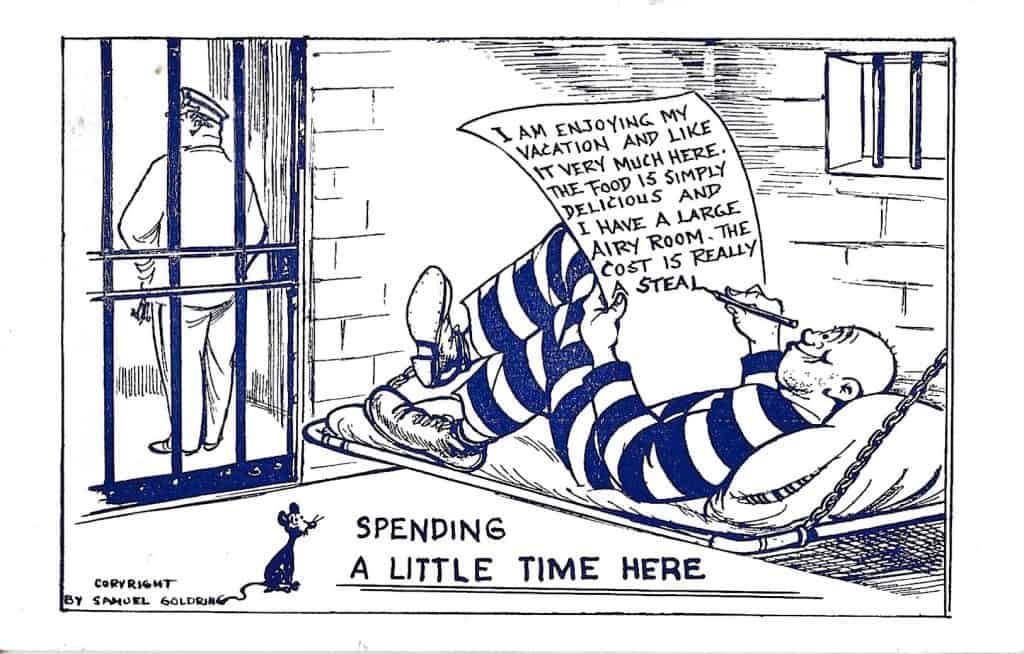
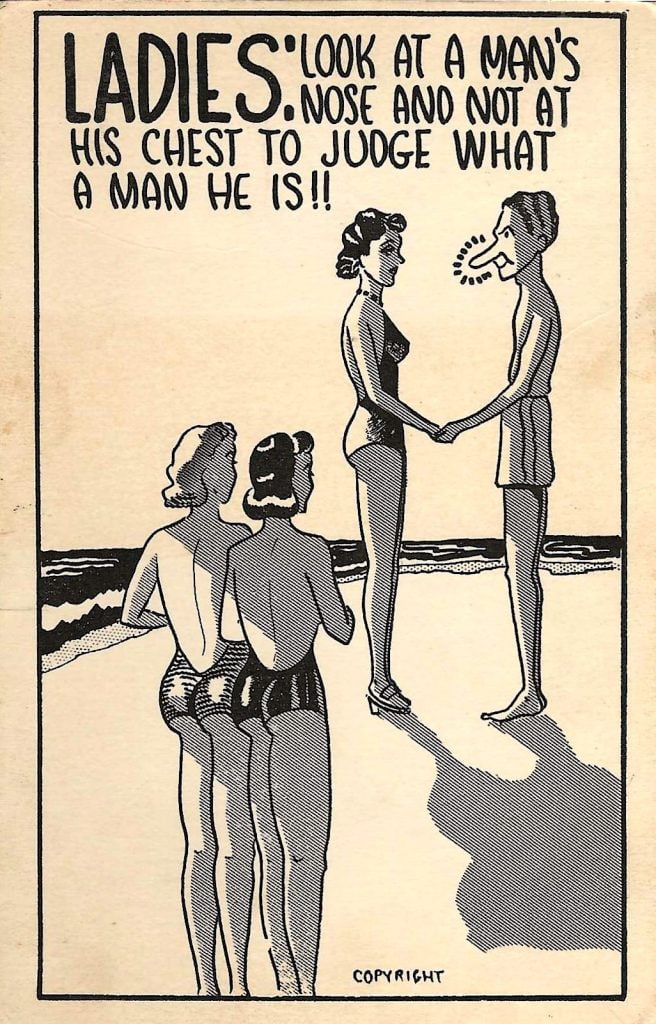
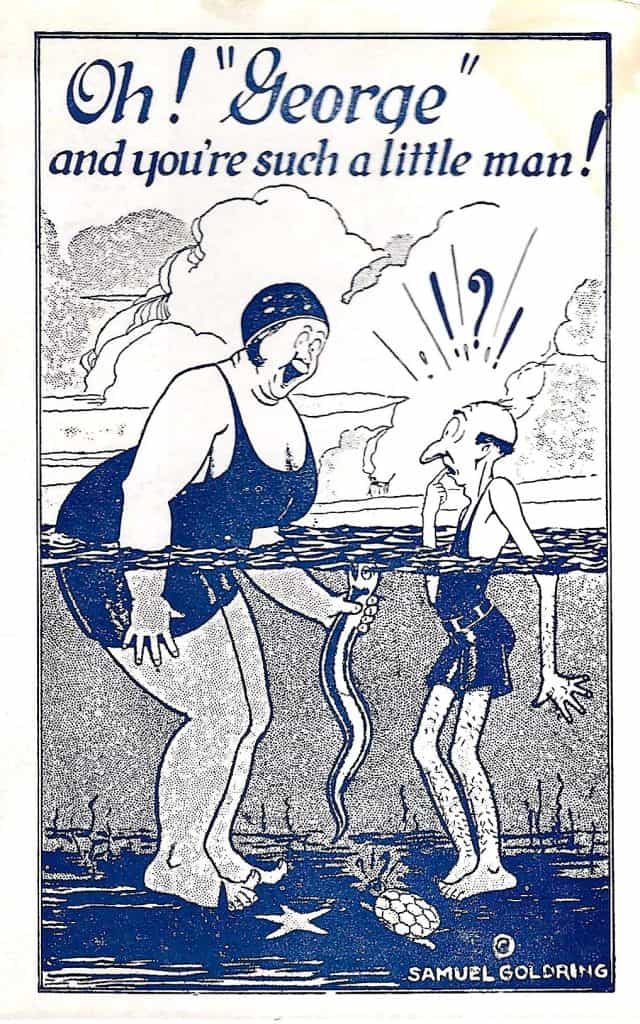
Goldring was clearly a man ahead of his time! Had the jokes on some of these cards appeared in the script of a movie during the 1930’s, the film would doubtless have been censored by the Hays Office.
A very amusing article.
Enjoyed this article and especially Mr. Goldring’s postcards!